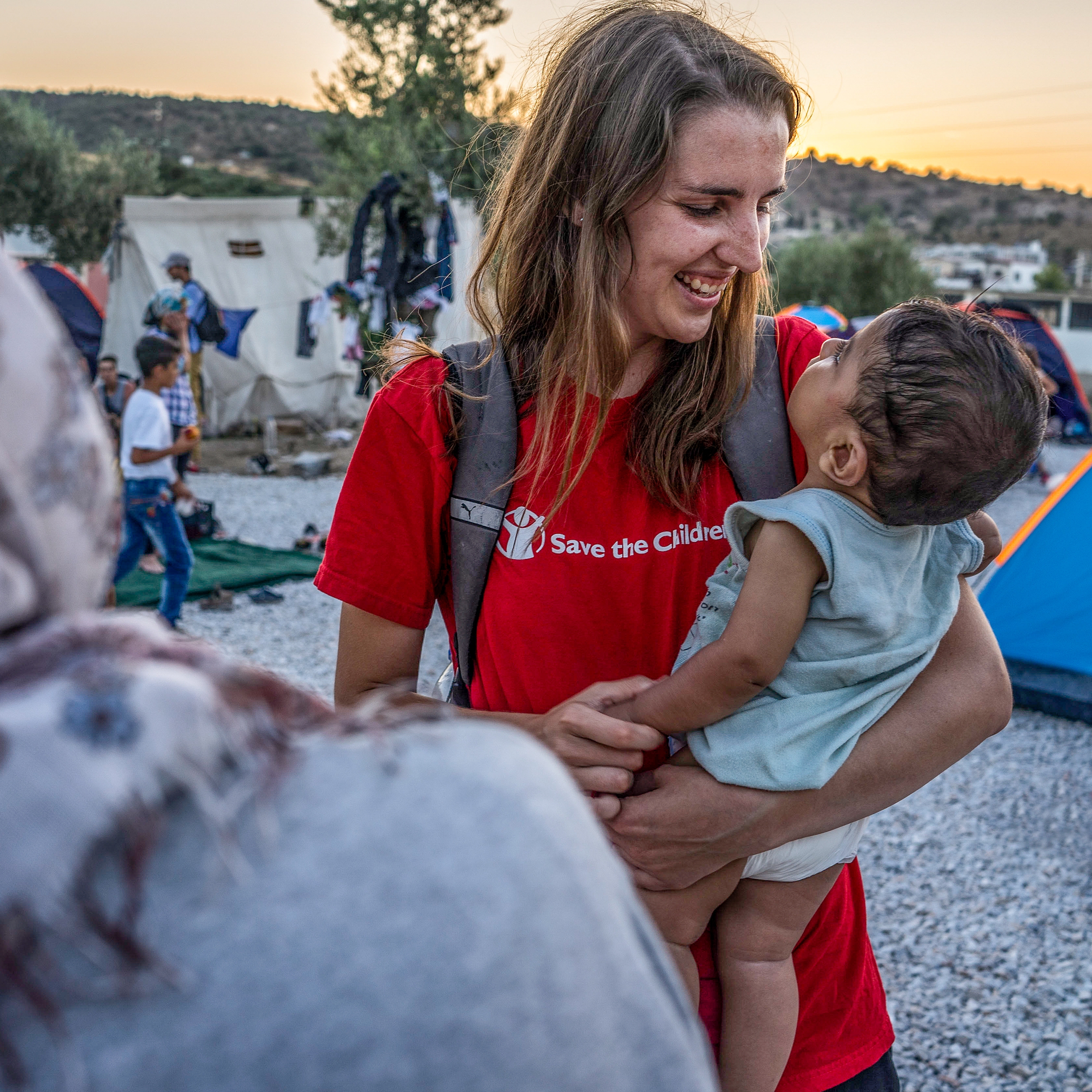
Kate O'Sullivan, communications manager for Save the Children in Greece speaks with a Syrian family from Homs in the informal camp in Kara Tepe, Lesvos.
Protecting Children in Emergencies
When children around the world are in danger of physical or emotional harm, when they’re caught in an acute or prolonged crisis, when disaster causes them to lose their homes and everything they cherish, Save the Children is there to help. In addition to responding to children's most basic needs during emergencies, Save the Children recognizes that all children are particularly vulnerable to a range of risks like separation from family, recruitment into armed forces, sexual exploitation and gender-based violence, physical harm and psychosocial distress. From the very start, we promote child protection in emergencies and engage with families, communities, donors and governments to ensure that the most vulnerable children do not get forgotten in the chaos.
We Reunify Families
A key priority for Save the Children during an emergency is to reunify separated children with their families in the shortest time possible. After the earthquake in Haiti, we worked with the government and other international organizations to help register unaccompanied and separated children and reunify them with their families. Save the Children’s specially trained caseworkers were also careful to support the children's well-being during the entire process.
We Provide Support
Emergencies can affect a child's feeling of security and hope. Save the Children caseworkers try to build on children's natural ability to recover from an emergency, and help caregivers cope during the difficult time and support their children. Save the Children implements child protection programs to benefit vulnerable children and families affected by years of violence, sanctions, and conflict. We have created Child Friendly Spaces in both schools and communities, where children and their families are free to talk to trained teachers, community members and staff about the issues affecting them. If a child is identified as needing more assistance, he or she is referred to a specially trained caseworker who carefully listens to the child and finds the services to help the child cope with their problems. Save the Children is committed to expanding its child protection activities so that all vulnerable children and families throughout conflict zones, like Iraq and Syria, receive the support and services they need to recover.
We Create Child Friendly Spaces
Child Friendly Spaces are one of Save the Children's most well-known activities to protect children during the first phase of an emergency or in areas of long-term crisis. A Child Friendly Space can be constructed in any available space, such as under trees, in a tent or in a courtyard. With support from families and community members who volunteer to lead the activities, children have the opportunity to play, sing and socialize with their peers — and to regain a sense of normalcy in difficult times. Child Friendly Spaces also help keep children safe during the day, allowing parents to focus on finding support and services in the immediate aftermath of an emergency and gradually rebuild their lives.
How You Can Help
Please support our mission to protect, support and save children’s lives with a gift to our Global Action Fund. You can count on us to be good stewards of your generous donation, helping vulnerable children where the need is greatest with whatever they need the most.
Thank you for signing up! Now, you’ll be among the first to know how Save the Children is responding to the most urgent needs of children, every day and in times of crisis—and how your support can make a difference. You may opt-out at any time by clicking "unsubscribe" at the bottom of any email.
By providing my mobile phone number, I agree to receive recurring text messages from Save the Children (48188) and phone calls with opportunities to donate and ways to engage in our mission to support children around the world. Text STOP to opt-out, HELP for info. Message & data rates may apply. View our Privacy Policy at savethechildren.org/privacy.